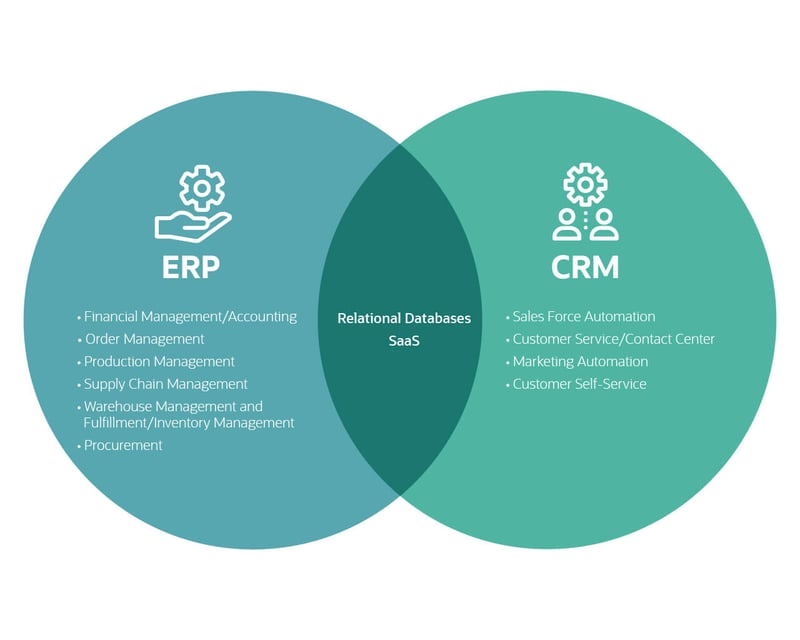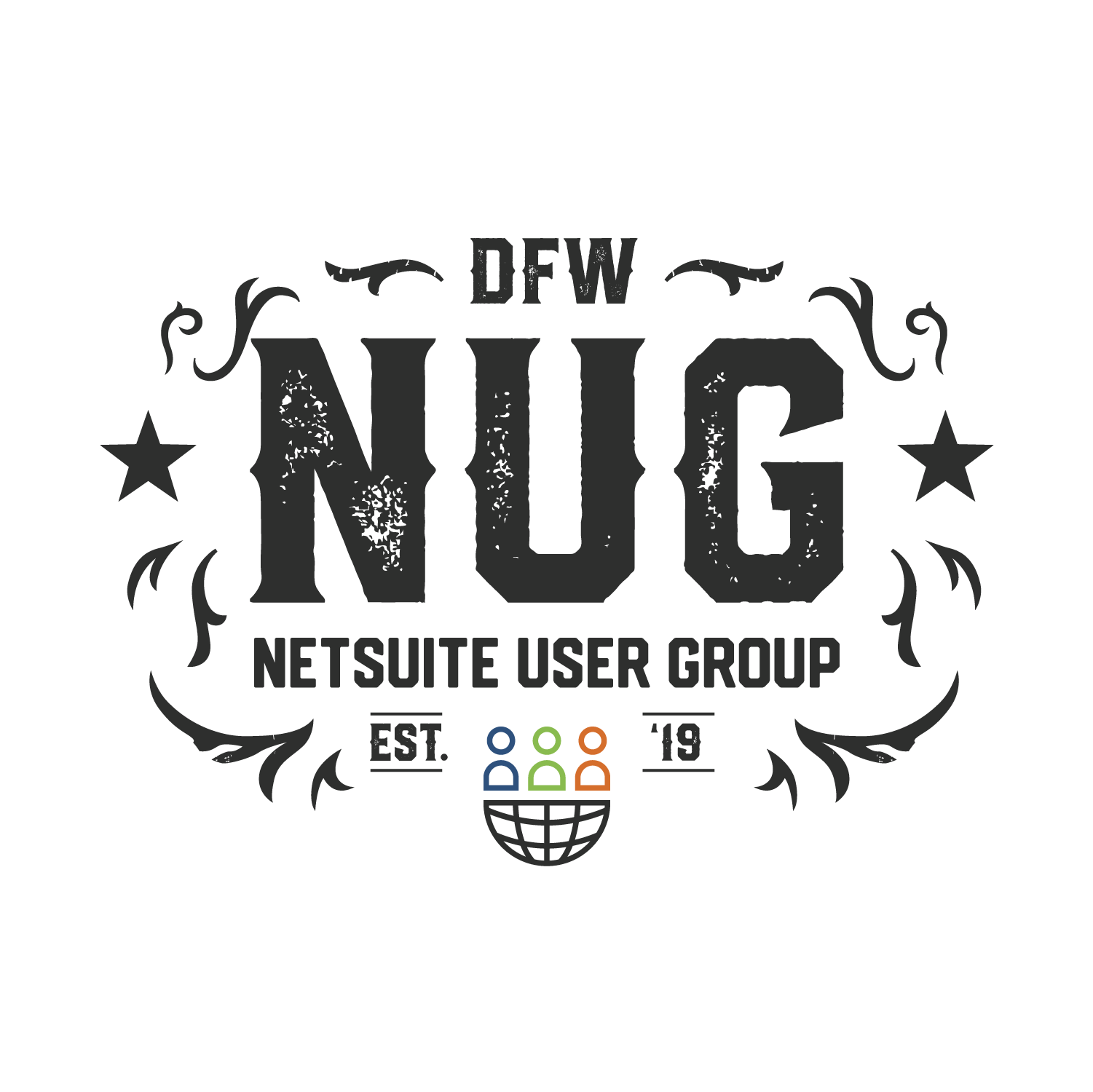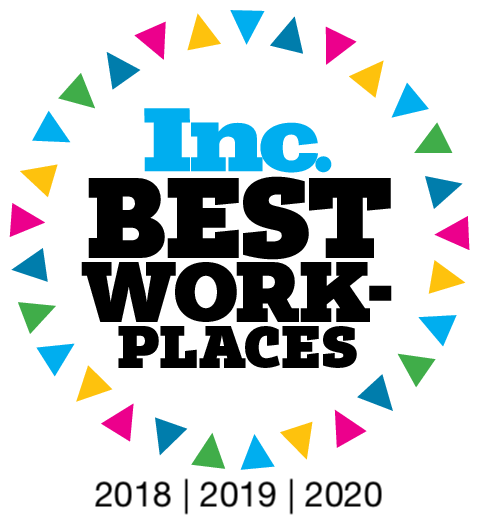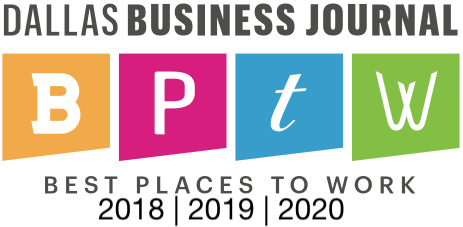.png?width=468&name=blog_47876118%20(1).png)
Businesses looking to automate core business processes typically look at two main software solutions, enterprise resource planning (ERP) and customer relationship management (CRM). ERP helps companies run successful businesses by connecting their financial and operational systems to a central database, while CRM helps manage how customers interact with their businesses.
Both serve as vital data repositories. Both also touch on multiple departments and, while they are sometimes built on the same platform, the software is often bought separately and integrated where needed.
What is CRM?
In short, CRM is software that manages all the ways a customer interacts with a business. Initially, CRM features were first developed for sales departments and were sometimes known as sales force automation (SFA). Other systems were soon developed to manage customer service interactions and marketing, particularly in the call center — or as it became known, the contact center, once the telephone became just another channel for customer service.
Through acquisition and development, software vendors began to combine all of these disciplines under one umbrella, called customer relationship management. Sales performance management and sales incentive compensation are also included in some CRM systems, but they’re often sold separately because of their complexity.
CRM Benefits
The central promise of CRM is to give the business a central repository of all customer data, tracking all customer interactions. Armed with this information and using analytics, businesses can make more informed decisions on which customers to pursue for added revenue, how sales teams are performing, how to service customers efficiently and appropriately, and more.
For example, with a centralized CRM system, sales reps will know whether customers they’re visiting have outstanding customer service tickets and can respond accordingly. Alternately, customer service can quickly see whether a caller is a high-value customer, or a potentially high-value customer, and route them to the appropriate service tier.
What is ERP?
Enterprise resource planning (ERP) evolved out of material requirements planning (MRP), which was a way for manufacturers to understand and manage all the resources needed to operate a successful business. ERP serves as a shared database to all the parts of an organization. At its core, this means finances, including the general ledger (GL), accounts payable, accounts receivable, payroll and financial reporting.
But ERP also extends to inventory management, order management, supply chain management and data related to services organizations. ERP touches on procurement, production, distribution and fulfillment as well. Some ERP systems also offer Human Resources Management Systems (HRMS), CRM and ecommerce.
ERP Benefits
The benefits of an ERP system come from having a single, shared database for all financial and operational data. This greatly impacts reporting — both static monthly reports and ad hoc reports requested by leadership. A single source of financial and operational data also means employees can drill down into reports to uncover financial insights without the need for IT or finance teams to conduct the analysis and reporting. This allows businesses to make faster, data-backed decisions that can impact everything from profitability to new growth opportunities to creating efficiency across the organization.
Another benefit of moving to an ERP system companies frequently cite is a faster financial close. Finance teams typically account for all income and expenses and tabulate the results at the end of each month or quarter, commonly known as closing the books. Closing the books using spreadsheets or entry-level accounting systems typically requires extensive manual work, data entry and contacting different departments for financial information. With a centralized ERP system automating many of those tasks, companies have reported reductions in monthly close times; this task now may take only a week to just a few days.
ERP systems also introduce much greater financial controls into an organization. With a centralized system and role-based permissions, only those with the proper job functions get access to sensitive data, improving audit trails and reducing financial risk.
What is the Difference Between CRM and ERP?
While the entire organization will come to rely on both ERP and CRM systems, the fundamental difference between ERP and CRM is that ERP is primarily for financial data and the finance department, while CRM is customer data used by the sales and customer service departments. The former is commonly referred to as the back office, and the latter is the front office.
Some ERP systems include a CRM component, while others do not, but CRM software systems do not include ERP components. For example, Salesforce.com is not an ERP system because it does not handle transactional data. It may access order history or invoices, but that data is brought in through an integration with the ERP system.
How are CRM and ERP Similar?
ERP and CRM are both business applications that store and analyze data in a relational database. Both are delivered either through a traditional on-premises model or through software as a service (SaaS), where the vendor manages the software in its own data center and customers access it through the cloud.
While NetSuite and Salesforce.com, the two pioneers in SaaS ERP and CRM respectively, got their start around the same time, CRM systems were quicker to move to the cloud because the systems proved simpler to build and businesses were initially wary of putting financial data in the cloud.
Do I need CRM or ERP or both?
Nearly all growing companies, from small and midsize businesses (SMBs) to enterprises, will eventually need both an ERP and a CRM system — or a single platform for both. Companies running their financials on entry-level accounting tools like QuickBooks or even spreadsheets often turn to an ERP system when they find those systems are holding back their growth, are inefficient or they simply need something more robust.
The same can be said for businesses managing their customer relationships in individual sales reps’ email clients, spreadsheets or contact management systems. Whether a company first invests in CRM or ERP will depend on its business model. A company with a small set of high-value customers and complex financials might be more apt to first invest in an ERP system, while a company with relatively straightforward financials and a large customer base requiring frequent contact might do the opposite.
Ultimately, however, both systems are essential for most companies.

This blog was originally posted on the NetSuite website,



.png?width=351&name=Inc%205000%20w%20Dates%20(real).png)



